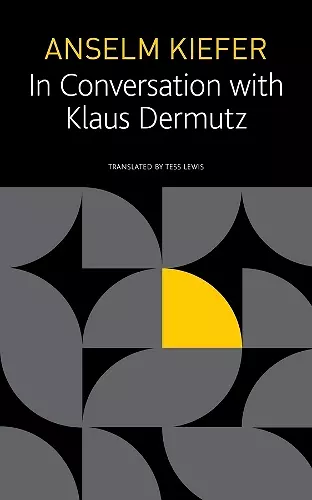Anselm Kiefer in Conversation with Klaus Dermutz
Exploring Artistic Influences and Creative Processes
Tess Lewis author Klaus Dermutz author Anselm Kiefer author
Format:Paperback
Publisher:Seagull Books London Ltd
Published:23rd Sep '22
Should be back in stock very soon

This book features conversations between Anselm Kiefer and Klaus Dermutz, exploring the artist's creative processes and philosophical influences.
In Anselm Kiefer in Conversation with Klaus Dermutz, the celebrated artist Anselm Kiefer engages in a series of ten insightful conversations with writer and theologian Klaus Dermutz. These dialogues delve into the fundamental aspects of Kiefer's art, exploring his aesthetics and creative processes. Kiefer, renowned for his unique blend of visual artistry and literary influences, shares how essential materials like lead, sand, and ashes play a crucial role in his artistic expression.
The book highlights Kiefer's profound literary connections, drawing from a wide array of intellectual figures such as Isaac Luria, Novalis, and Martin Heidegger. Each conversation reveals how these thinkers have shaped Kiefer's approach to art, as well as his examination of complex themes including guilt, suffering, and communal memory. Through his discussions with Dermutz, Kiefer reflects on his controversial status in the art world, navigating the delicate balance between criticism and acclaim.
Anselm Kiefer in Conversation with Klaus Dermutz offers readers a rare glimpse into the mind of a deeply reflective artist. It serves as a valuable resource for those interested in the intersections of visual arts, literature, and the historical context of the twentieth century. The conversations are not only enlightening for artists and critics but also for anyone seeking to understand the intricate relationship between art and its cultural implications.
"This tome is an essential read that offers a rare access into a mind of a great artist – an artist that transcends confines, labels and defies classifications – and one anyone remotely interested in visual arts and the aftermath of the twentieth century would benefit from." * Scene Point Blank *
ISBN: 9781803090382
Dimensions: 202mm x 129mm x 21mm
Weight: 386g
374 pages